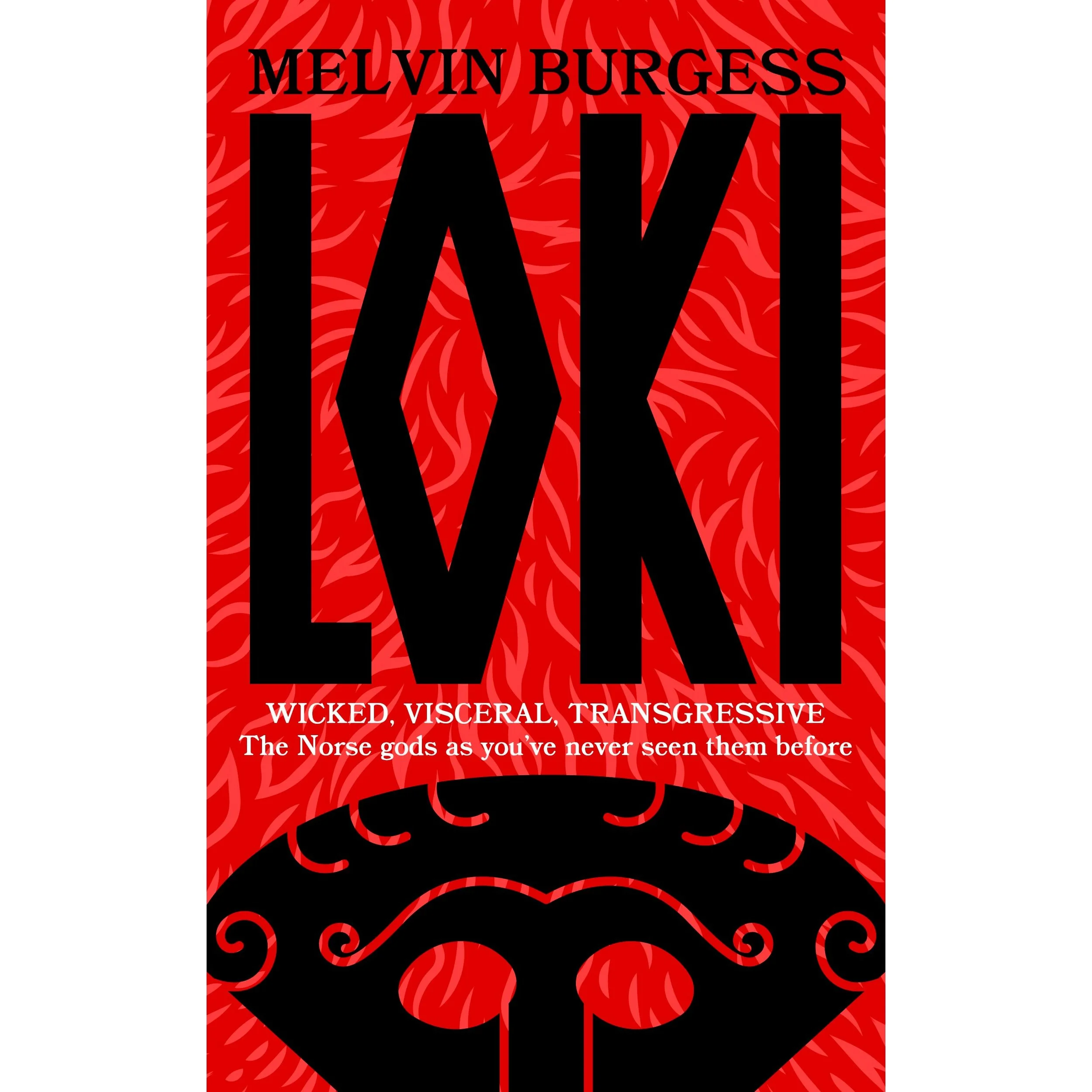Loki by Melvin Burgess
I would like to thank Kimberley from Coronet for an advance copy of this novel in exchange for a fair and honest review
Publisher - Coronet
Published - Out Now
Price - £16.99 hardback and kindle eBook
Starting with the Norse creation myths, the trickster god Loki takes the reader on a wild ride through Norse mythology, from the time the gods - the founders of Asgard - defeated races of monsters, and hurtling through famous stories, including Odin hanging himself on the World Tree, the theft of the corrupting gold ring and the murder of Baldr, the god of love and the Sun. This narrative may seem familiar enough at first, but the reader should beware.
Born within the heart of a fire in the hollow of a tree-trunk, Loki arrives in Asgard as an outsider. He is a trickster, an unreliable narrator, the god of intelligence and politics. In spite of his cleverness and sparkling wit (or, perhaps, because of this...) Loki struggles to find his place among the old patriarchal gods of supernatural power and is constantly at odds with the god of thunder - Thor.
Alongside the politics of Asgard, it charts the course of Loki's many loves and families, from his mothering of Odin's famous horse to his intense, turbulent, and, eventually, fatal relationship with Baldr the Beautiful - a tender and moving story of love that goes wrong, jealousy and a transitioning that is forbidden by society.
This is a retelling that is contemporary in tone, at once amusing and relatable. It is a heartfelt plea to overthrow the old gods of power and authority and instigate a new era ruled by love and intelligence.
The trickster I think has a key role to play. The force of change. Change is not always welcome but its necessary for things to progress or to move on. I’ve a soft spot for them and I suspect that appeal has long been since I was a Doctor Who fan. It is fun exploring how they have developed in many cultures. One intriguing entry into the pantheon is the Norse god Loki who when I was young was more a villain and certainly blamed for Ragnorok and yet these days the tales are more noted for how Loki is the one who brings Gods down a peg or two. Melvin Burgess has in their new adult novel Loki provided their own spin on this character and his role in our world and overall itis an interesting experience to put yourself in this God’s shoes.
Loki was not born like the other gods. He came out of the battles and fires the first war of the gods that created the world led to. He soon though found his rightful place and how our hero(ish) tells us the real story of Odin, Valhalla and why he is being cruelly punished. Prepare for the truth of immortality, the birth of humanity and of course the end of the world.
Loki is a short punchy read. For me the standout is Burgess creates a character and voice that stands out in the various Lokis that we have seen recently in fiction and other media. He’s more earthy, sweary and yet still cunning and knows how to tell a story. There are some very memorable scenes - the weirdness of the Gods making the sun using the eye of an immense god and then brining the sun to Valhalla; the death of Odin in order for him to gain even more knowledge and power plus the scary birth of Loki’s inhuman children. Burgess gives these scenes from mythology a wonderful weirdness the fantastical is unexplainable and exciting even to a modern audience perhaps overly used to these tales. I also enjoyed that Loki thinks there is more skulduggery between the gods than you’d think - Tyr the god of war is an intriguing presence we hardly ever think about these days and yet our world is such a violent one. Burgess’ Valhalla is dirty, selfish and not at all a safe place to be which gives the story an edge. There is a terrible but powerful scene of gods using the souls of the dead to eternally fight for them which stays int he memory and a bit more of this topic would have been fascinating to explore further
The downside is I’m not quite sure the story is always fleshed out. Loki says after many adventures he arrived at Valhalla with new skills - there is no explanation of how. It is a very scatty selection of tales and overall, my sense is that Burgess is less interested in retelling and more interested on the fall of the gods and which side we should be on - beware the powerful because they are corrupt is a prescient message even now. I actually think the story could have been a lot stronger with that focus and not need to tell us again about immortality giving apples and eight legged horses. There is always the opt out that Loki is a continual liar to explain these gaps but for me the story is trying to fit between two stools and not always achieving this comfortably. I’d like to know why Loki cared not simply be told he was.
I’d suggest reading Loki’s tales almost as a short story collection and seeing the connections build up but beware the feeling that some other and perhaps more interesting tales have been left out. An unusual reading experience but the voice of the god will stay with you but perhaps not as edgy as it wishes it was/
